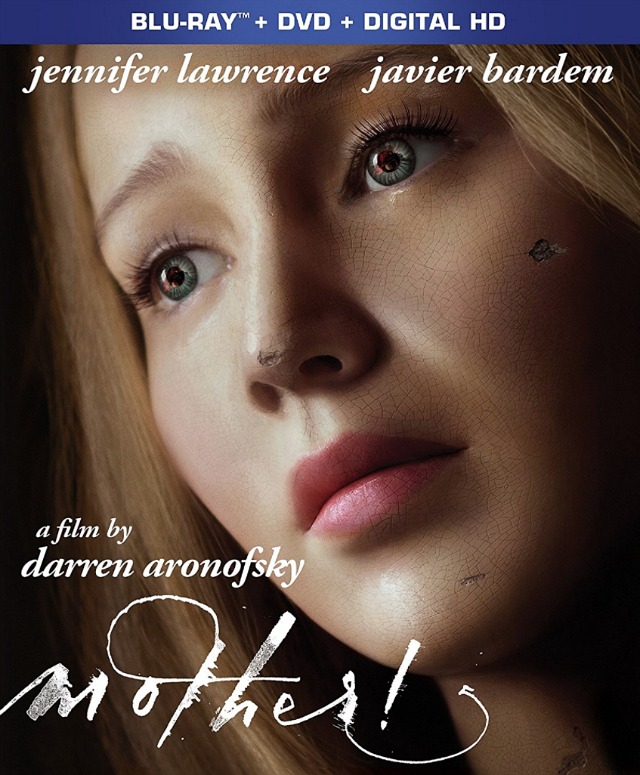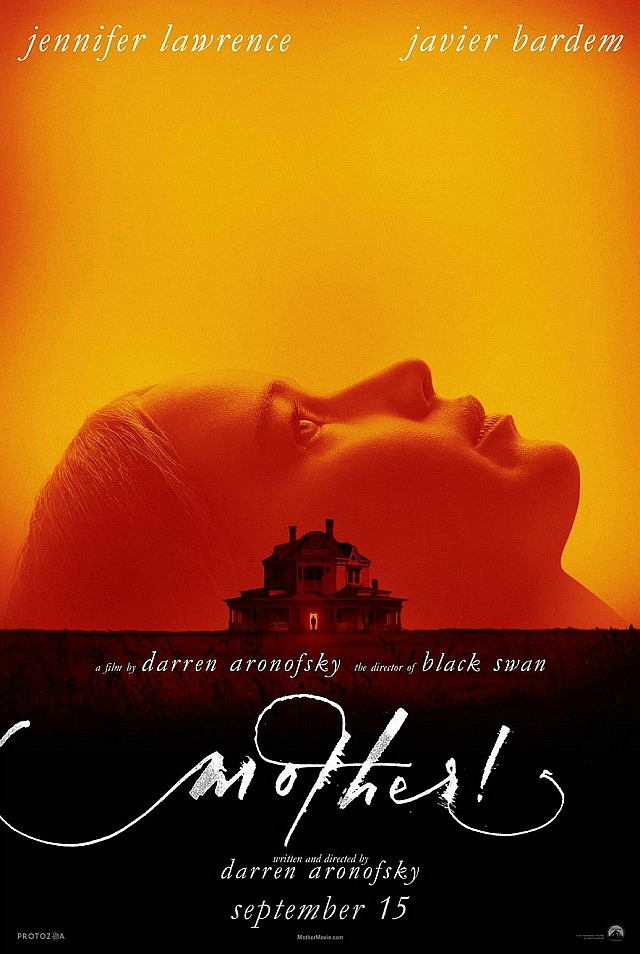“Ballsiest Visionary Art Film Of The Year,” posted on 11.4.17: Who knows if there will even be serious film historians 50 years hence? The culture might be so degraded by then…I don’t want to think about it. But if they’re still around one or two will probably look back upon our troubled epoch and ask “which 2017 films really conveyed what the world was like back then? Which tried to express what people were hoping for or afraid of? Which tell us the most in terms of cultural self-portraiture or self-reflection?”
I can guarantee you right now that Darren Aronofsky‘s mother! will definitely be among the few films that scholars of 2067 will study when they ponder U.S. culture during the first year of Donald Trump’s administration.
I can also assure you that no one will pay the slightest historical attention to Thor: Ragnarok or Logan or even Blade Runner 2049. These three films have earned serious box-office coin, of course, while mother! topped out at a measly $17,800,004 domestic and $25,850,098 foreign. But they won’t matter when all has been said and done and the deciders have completed their assessments. Art lasts; all diversions melt.
In the same way that the mid ‘1950s were clearly reflected by Kiss Me Deadly, Patterns, No Down Payment and Invasion of the Body Snatchers and the currents of the mid to late’60s were c channelled by Bonnie and Clyde, Rosemary’s Baby, The President’s Analyst and The Graduate, Aronofsky’s allegorical horror film burrows right into the dirt and muck of the here-and-now.
In my book mother! is either the fourth- or fifth-best film of the year, in part because it’s probably the most courageous. How did Aronofsky get Paramount to finance and release a film that Joe and Jane Popcorn reportedly hated with a passion? Whatever the back-story, the release of mother! is a proud event in the annals of American cinema because it went for something and nailed it, because it reaches right into the nightmares and agitations and self-loathings of a convulsive era and says “do you smell it…do you sense the disease and disruption? Not the chaos that you’re watching on-screen, but the real-deal horrors that are defining the world outside?”
If there are any film critics organizations out there with any balls, they’ll give Aronofsky a special artistic courage award or two next month.
“Obviously all horror flicks are signifiers of cultural undercurrents,” I wrote on 9.15.17. “Most stand and deliver as visceral experiences, but the best ones slip into your bloodstream and before you know it you’re them. Or they’re you. mother! is visceral as hell, but you can’t watch it and not think ‘uhhm, this is about more than what I’m seeing on the screen…this might actually be about everything that’s happening on the planet right now.’ Or not. Up to you. But it begs to be grappled with.
“What happens in mother! is not entirely pretty or pleasant, but the movie is obviously a social or mythical allegory of some kind. I regard it as a portrait of the rancid, poisonous currents in our culture invading and ruining an oasis of purity and simplicity, or maybe as just a simple re-telling of the Adam and Eve saga. Some are seeing a reflection of what celebrities often go through with overly aggressive fans. The other day I called it ‘the single most profound explanation or dramatization of the saying that hell is other people.’ Others are detecting an oblique confession of what Aronofsky may be like as a husband (i.e., self-engulfed in his artistic process, susceptible to mood swings).
“Reactions are so intense and all-over-the-map that there’s only one thing to derive: mother! has to be seen.”
And yet tens of millions haven’t seen it to this day, and probably won’t stream it when those floodgates have been turned on. People don’t want to see what they don’t want to see, but mother! is for the ages.
The one thing you can’t do is watch mother! and say “wow, that was an intense and unsettling film about a lot of ugly, assaultive people invading a remote Victorian home and all but destroying a marriage in the process,” followed by “I liked it” or “I didn’t like it.” If that’s your reaction, you need to re-think it.
I said in my review that just as making people laugh is the lowest form of humor, simply trying to scare people is the lowest form of horror. Which isn’t to say Aronofsky’s film isn’t scary. It’s a nightmare fever thing that infects your blood. But there’s a river churning beneath it.


